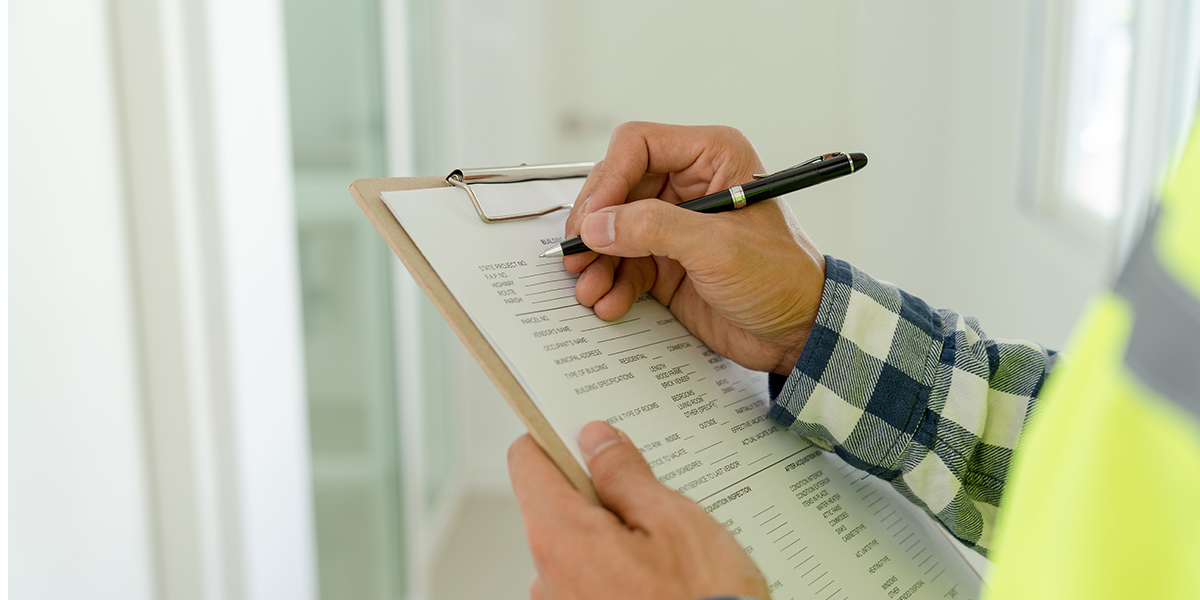The importance of conducting regular property inspections

For landlords, a rental property is more than just an income stream… it’s a valuable investment. Protecting that investment requires ongoing attention, and one of the most effective ways to do so is by carrying out regular property inspections.
Far from being a box-ticking exercise, inspections are a vital part of responsible property management. They help landlords stay compliant with legislation, maintain the condition of their property, and support positive relationships with tenants.
Why regular inspections are essential
1. Protect your property investment
Regular inspections give landlords the opportunity to spot small issues before they escalate into costly repairs. A minor damp patch, faulty extractor fan, or loose tile can quickly become a much bigger problem if left unchecked. By addressing these early, landlords can save significant time and money.
2. Meet your legal responsibilities
In Scotland, landlords are legally obliged to ensure that their properties meet the Repairing Standard. Regular inspections are one of the best ways to demonstrate compliance, providing a clear record that you are proactive about health and safety.
3. Support your tenants
Inspections are also beneficial for tenants. They create an opportunity for renters to raise maintenance concerns they may not have reported otherwise, from heating issues to appliance faults. This helps create a safer, more comfortable home and encourages tenants to stay longer.
How often should landlords inspect their property?
Most experts recommend conducting a property inspection every three to six months. The first inspection - usually around three months into a tenancy - is especially important, as it sets the tone for the landlord-tenant relationship and ensures the property is being looked after.
This frequency ensures problems are caught early, without intruding on tenants’ right to quiet enjoyment of the property.
What to check during a property inspection
A well-structured inspection should cover:
- Interior condition: Look for signs of damp, mould, leaks, or damage.
- Safety checks: Confirm that smoke alarms, CO detectors, and fire exits are in place and working.
- Appliances and heating: Ensure boilers, ovens, and other white goods are safe and functional.
- Exteriors: Check roofs, gutters, drains, and gardens for wear and tear.
- Tenant care: Note any unauthorised changes or overcrowding issues.
Using a consistent checklist helps landlords carry out inspections efficiently and ensures nothing important is overlooked.
Communication matters
Inspections should always be approached with professionalism and respect. Landlords must provide at least 48 hours’ written notice before entering the property, and scheduling visits at convenient times helps maintain good tenant relationships.
Framing inspections as a collaborative process - ensuring the property remains safe and comfortable - helps avoid conflict and builds trust with tenants.
How ESPC Lettings can help
While inspections are essential, they can also be time-consuming and stressful for landlords who self-manage. That’s where ESPC Lettings’ property management services can make a real difference.
Our experienced team takes care of everything on your behalf - from arranging and carrying out regular property inspections, to managing maintenance, handling tenant communication, and ensuring your property remains fully compliant with Scottish regulations.
By choosing ESPC Lettings, landlords gain peace of mind knowing their investment is being professionally managed, while tenants benefit from a responsive and reliable service. This not only protects your property but can also help secure longer tenancies and reduce costly void periods.
If you’re interested in entering the buy-to-let market, ESPC Lettings can help. As a letting agent based in Edinburgh, we can assist with all stages of renting out a home, starting with finding the right property.
Get in touch with the team today on landlord@espc.com or 0131 253 2847.